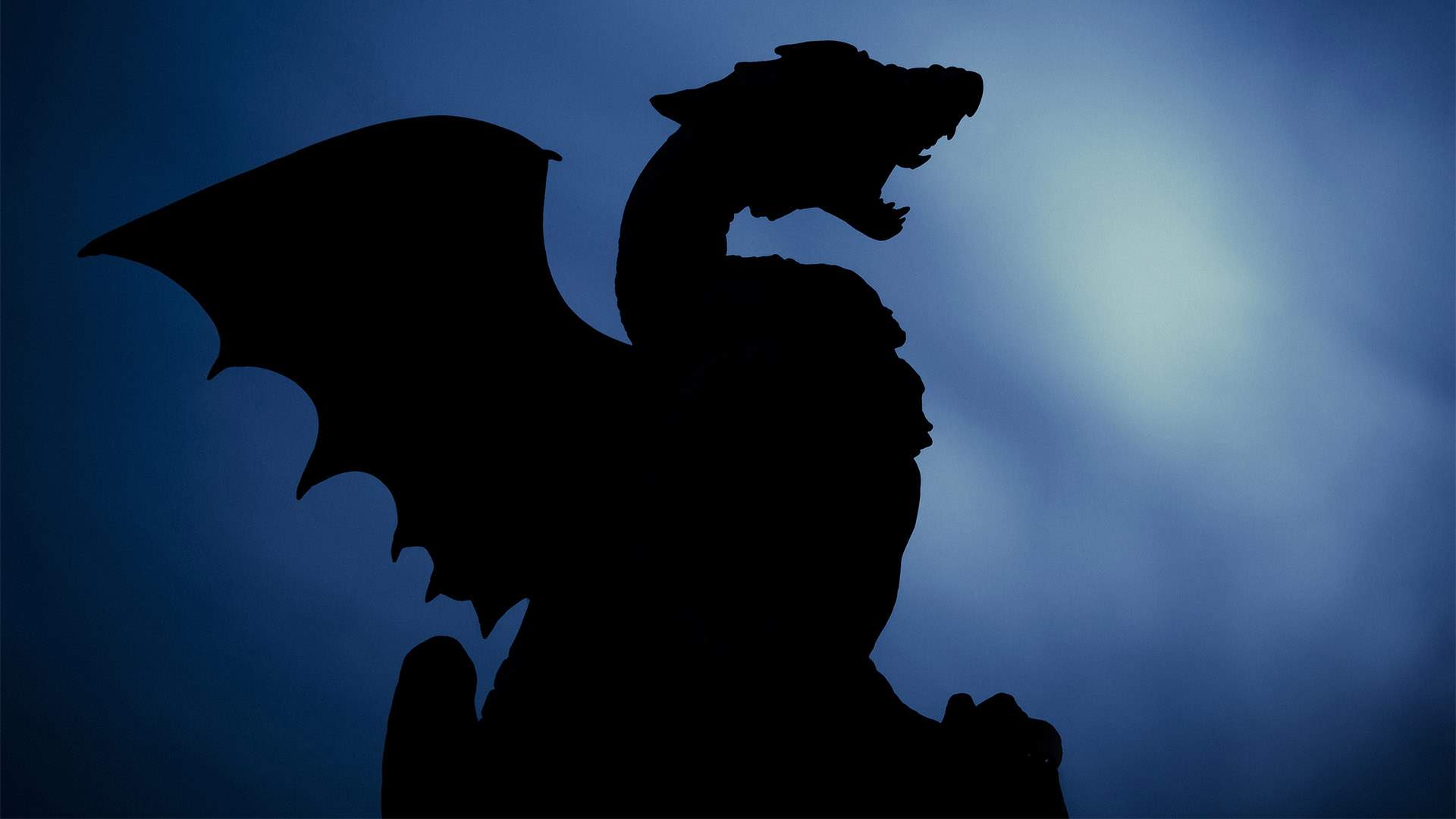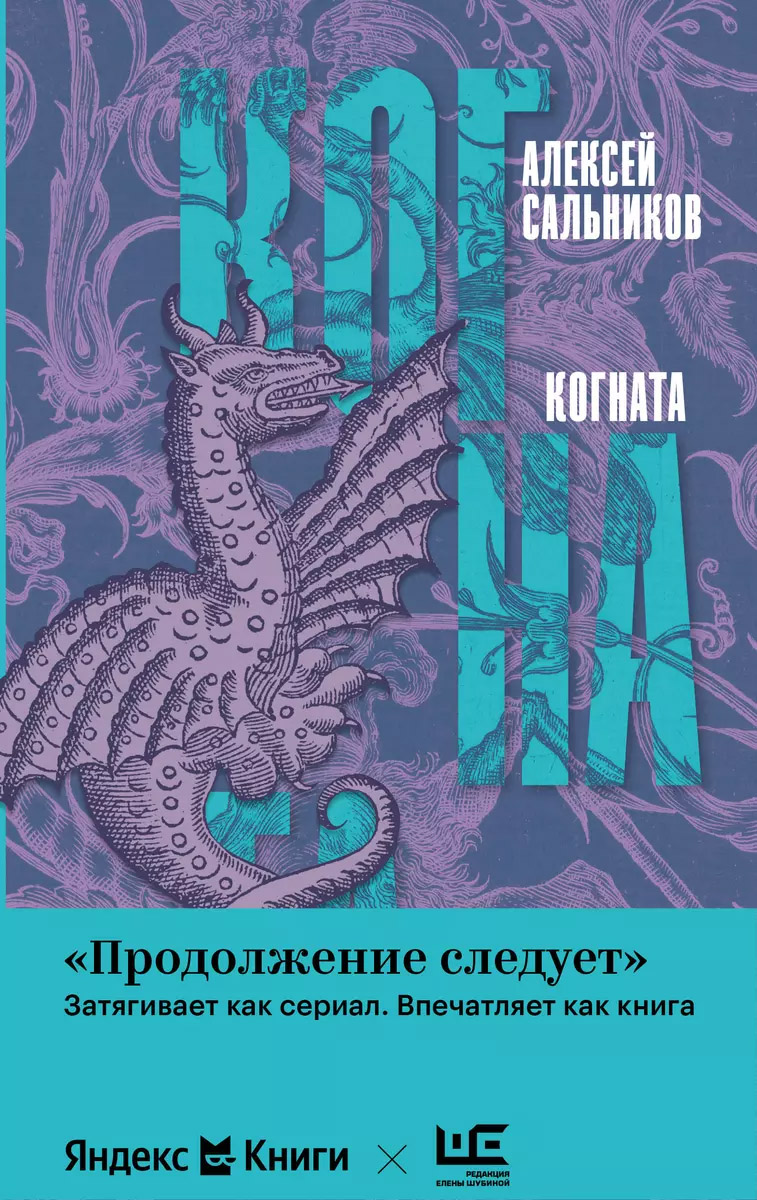- Статьи
- Culture
- Draconic Polymers: a fragile truce between monsters and humans in Alexei Salnikov's new novel
Draconic Polymers: a fragile truce between monsters and humans in Alexei Salnikov's new novel

The theme of dragons in our time has returned to its former popularity, primarily due to the famous TV series about the showdown around the thrones of fictional kingdoms. But the famous novelist Alexei Salnikov develops the theme of fire-breathing and bloodthirsty creatures for quite some time. However, in his new novel, they are not scaly creatures at all, but much more humanoid (including in a bad way) creatures. Critic Lidia Maslova presents the book of the week especially for Izvestia.
Alexei Salnikov
"Cognata"
Moscow : AST Publishing House : Edited by Elena Shubina, 2025. - 348 с.
The beginning of Alexei Salnikov's new novel is a little reminiscent of the exposition of one of his earlier works - "The Division", where the hero gets a job in the "internal organs", which have a mysterious-absurdist flavor thanks to Salnikov's special Kafkaesque surrealism. In the very first scene of "Cognaty", Konstantin, a state security officer who has been transferred from field work to bureaucratic work, briefly dozes off at the desk of his office, where he processes "reports from conscientious citizens". A call from Colonel Dmitry Nilovich breaks the hero away from the boring monotonous papers, although before the reader they unfold a brief but accurate picture of the society where the action takes place.
In it, as usual with Salnikov, elements of phantasmagoria are gradually mixed with recognizable signs of reality (say, the Soviet Union of the 1950s): "Most of all, they complain about alcoholics, whom they can't get through to the trade unions. Speculators. Trade workers who clamp down on goods. Someone is trying to bribe their neighbors with an anonymous letter for old grudges. There are signals about moonshining. There are enough psychos, not without it: someone sees saboteurs where they are not, someone cipher in the "classics" on the asphalt".

Not yet back in combat uniform and limping with a cane Konstantin awaits a new urgent and dangerous task. The international situation, as usual, tense, and about stability in the world created by Salnikov does not even dream of stability. This can be quickly guessed from the conversation between Konstantin and the colonel, where he mentions the war between people and dragons, ten years ago, which ended in a fragile truce, and whether it will start again, now largely depends on Konstantin.
The existence of "dragons" as the main human enemy gives every reason to define "Cognata" as a kind of "fantasy", but the dragons here are not those snake-like reptiloids that J. R. R. Tolkien or Ursula Le Guin have, but original Salnikov's creatures, much more anthropomorphic. From the orthodox mythological dragons they still have the ability to fly (under certain conditions, primarily related to food habits), breathe fire and in general physical power, strikingly superior to human. However, outwardly, these dragons are quite similar to humans, especially from afar and in low light.
"Spalid" dragon saboteurs can, first of all, because of the special texture and color of their skin devoid of vegetation, making them look like plastic dolls: "Unlike humans, the hair of dragons did not grow all over the body, but only the eyebrows they had, and hairstyles, eyelashes still, well, and the male dragons appeared something like roughness on the face. Dragons did not have that fine, barely noticeable fluff that shone slightly on human faces when caught in the sunlight. The fact that the dragons seemed to be painted in one uniform color gave their appearance a dead or artificial appearance."
In addition, dragons have their own language, or rather, an adverb that differs from the human language, primarily in the order of words, which makes dragons' lines often resemble Master Yoda. "I have spared you. I expect words of gratitude and reverence from you," says one of the book's main characters, the draconess Volitara, whose relationship with Constantine undergoes a complex evolution. Having been captured by dragons as a child in the status of a toy or a dog, by the end of the book Kostya actually turns into a member of the dragon family, although he does not cease to be a valuable employee of human state security. This is one of the important ideas of "Cognata" for Salnikov - that individual relationships can become more important than interspecies conflicts, and the solution to ethical problems is always individual.
"There are straightforward own-ones who can probably do whatever they want, and I don't care if they're dragons, humans - it doesn't matter," explains one of the neutral characters, by official status an "ogre" but essentially a vegetarian who has adopted a dragon girl under a human name. - I'll never find justification for the other behaviors of other sentient beings, but I will for Nastia's. If she grows up and kills and burns everyone here, I'll think that she had to do it, that she had to do it, that there was no way to do it without it.
Despite many years of enmity, irreconcilable contradictions and difference of mentalities (dragons disparagingly call humans monkeys, and dragon people - cuttlefish), there is still an inevitable socio-cultural diffusion between humans and dragons, which Salnikov outlines with humorous touches. For example, humans have adopted the dragons' hieroglyphics, which human schoolchildren now hate dragons even more than war, as Konstantin's young communal-room neighbor says. In addition, as Konstantin explains in response, dragons have also invented communism, but it has to be built by humans again: "And they have reactionary forces came to power, and the dragons have rolled back in their social development. We are now the most advanced system on the entire Earth plane". Yes, the Earth in Salnikov's picture of the world is flat, which has little effect on the basic set of conflicts between warring species.
The main tool for maintaining balance in a world where humans and dragons are forced to coexist is the so-called Mirror, a special membrane placed on the border between human and dragon territories. The stubborn Mirror, as if wanting to establish contact between the warring parties in its own way, constantly throws out dragon children on human territory, and human - on dragon territory, and, according to the established agreements, both must be returned. Only some people can pass through the Mirror, under certain conditions or with some unexplainable abilities. Such abilities are possessed by the guide Maxim, who is to escort Konstantin and the little dragon girl beyond the Mirror.
It may seem that when asked what her name is, the baby dragoness rudely replies: "As it should be", but in fact the meaning of her Latinized, as in all dragons, name, begins to reveal itself in the philological note that precedes the book: "Cognates (Latin cognati, literally "kindred") - in linguistics, historically homogeneous words that have a common origin in two or more languages. The sound of such words is often similar, but can diverge widely from one language to another. In most cases, the meaning of cognate does not coincide completely".
However, one of the characters decodes Cognata's name much more simply - as "native". The girl, who occupies a very high place in the dragon hierarchy, indeed turns out to be a much closer relative of one of the central human characters than he could have anticipated and was willing to allow. The heartbreaking plot twist preceding this discovery is well worthy of the pen of "monkey writer Fyodor Mikhailovich," as Salnikov calls Dostoevsky's favorite Dostoevsky, the irreconcilable underground dragon dictator Fumus, the book's main anti-hero and perhaps the only fully negative character who is denied any glimmer of humanity.
But the rest of the dragons, and humans as well, are not at all hopeless. In "Cognate" Salnikov, who since "The Division" has proven himself as a master of gradual and paradoxical humanization of the most horrible monsters, acts as a true humanist and peacemaker, whose cherished thought is formulated by a human character who has suffered the most from dragons: "He wanted one thing: that when everything was over, both among humans and dragons, those who considered themselves better than others only by birthright, only by belonging to the human or dragon lineage would disappear. However, the utopianism of this dream is sadly stated by a cooperating positive dragon with a sociology degree: "The sociologist inside me says that, unfortunately, we who continue interspecies communication are a tiny fraction of a percent, and if another conflict happens, we will play no role. Our voices will simply be drowned out, washed away by what is said on the radio and printed on posters and in newspapers. And I can't vouch that I won't go to war again, that's the thing..."
Переведено сервисом «Яндекс Переводчик»





